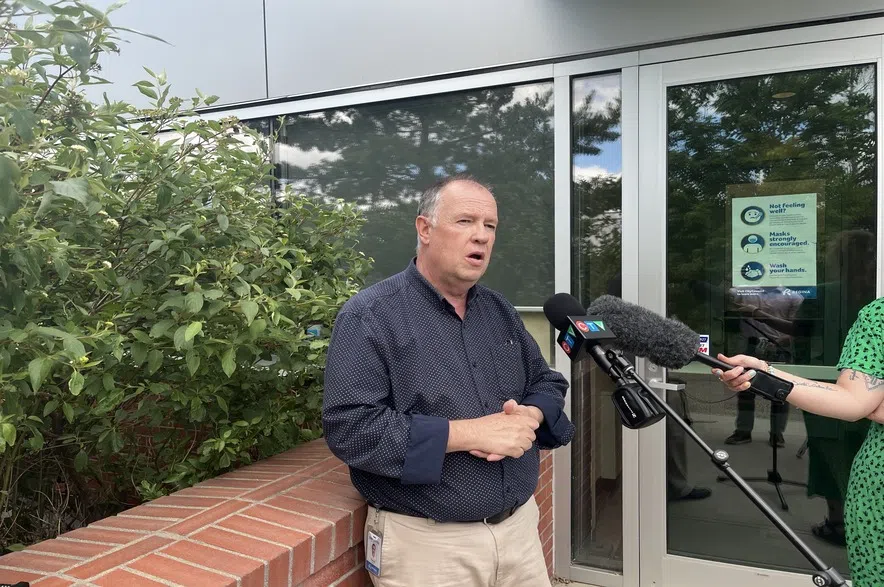The number of mosquitoes in Regina is low for this time of year.
That’s according to Russell Eirich, the manager of open space services for the City of Regina. But he said he’s expecting a surge in numbers due to the combination of rain and warm days the city has been seeing recently.
“Mosquitoes are coming. We know that they’re in the water. We’re seeing them coming, and they’re starting to emerge,” said Eirich.
“And we think before the weekend that there’s going to be kind of a little bit of a hatch going on where we’re going to be seeing them come out.”
Eirich said there are some ways residents can help prevent mosquitoes from breeding and hatching in their yards.
READ MORE:
- Cankerworm population lower than previous years
- As Canada warms, infectious disease risks spread north
- ‘Wonderful little hitchhikers:’ Cockroaches a major problem for Sask. exterminator
“We’re asking residents to get into their backyards (and) start to try to drain any standing water that’s there,” he said.
“Any old paint cans, any old dishes, if you’ve got any rain barrels that you haven’t sort of covered or tried to screen off to keep mosquitoes from laying more eggs… Anything that can get drained in a backyard will really help the community out in the future.”
Eirich noted that the prime time for mosquito activity is the half hour period before and after dawn and dusk.
“Wear some loose-fitting, light coloured clothing just to help make it more comfortable for you and make your summer evenings more enjoyable,” Eirich advised.
Eirich said the city is treating large bodies of water to help prevent mosquitoes from laying eggs there.
“We do have our mosquito control crews out. They are treating the standing bodies of water,” said Eirich.

Russell Eirich said July is statistically the worst month for mosquitoes in Regina. (Kaleb Sebastian/980 CJME)
“They use a product called VectoBac. It’s a biological insecticide. It’s naturally found in grain dust and soils, and they apply it to the water. What happens then is the mosquito larva themselves will feed on that bacterium that’s there, and then they stop feeding, and essentially the bacterium will starve (them) to death.”
Eirich said city crews use an average of 20,000 kilograms of product each year between the start of May and the middle of September.
Eirich said the low number of mosquitoes in the current counts could actually be deceiving.
“Our counts are actually pretty low right now, and I think this is actually something that is pretty fooling. We’ve had a lot of windy nights and those windy nights have been actually interfering with the ability to trap the mosquitoes,” said Eirich.
He said that last week, the traps had just one mosquito per trap, compared to an average of 28 per trap in a typical year.
“We’re low, but I really do think that once the wind kind of calms down and we get some heat, (the mosquitoes) are here,” he said.











